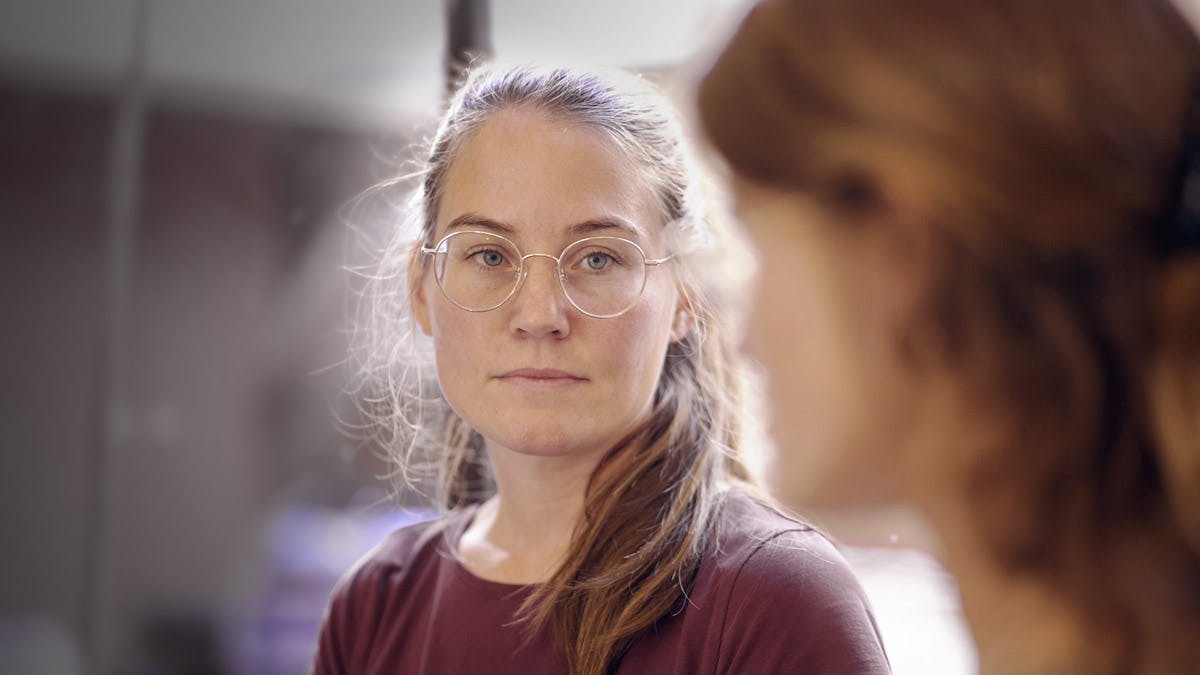
Christians, Your Jewish Friends Are Not Okay
Your support means more than you know.
by Sam Rood | October 26 2023
As Jewish people who believe in Jesus, we often find ourselves in the position of standing between two worlds. Even though we are sometimes misunderstood by the Jewish and Christian communities, we are also in the unique position to translate between the two. Specifically, we can help non-Jewish followers of Jesus better understand and sympathize with the Jewish community. And to our Gentile brothers and sisters in this moment, we are saying that your care and support for Jewish people is needed right now more than ever.
A Tidal Wave of Emotions
On Saturday morning, October 7, a message in one of my WhatsApp groups alerted me to the suggestion that something terrible was happening in Israel. I pulled up an Israeli news site and was sucked into the all-too painfully slow newsfeed. There had been an attack. Was it an invasion? A terrorist attack? I started texting my Israeli friends to ask if they were okay and to let them know I was thinking of and praying for them. I was alone with my two young children, but I couldn’t peel my eyes away from my phone. I felt sucked in. I haven’t fully emerged since.
Even though I’m not Israeli, I am Jewish, and I am gutted. At times, I am sick, other times, angry. Later, I am fearful. Then I’m sad. Most of the time, I can’t tell you what I’m feeling. My mentor, a pastor from my days as a college student, spoke with me on the phone and let me vent. I contradicted myself. I’m sure I didn’t make sense all of the time. I told him, “This has been the worst couple of weeks I can remember.”
Like many American Jewish people, I have spent a significant amount of time in Israel. I visited there four times during my college years and lived in Haifa and Tel Aviv for three months. I considered moving to Israel or even becoming an Israeli citizen. So, I know many Israelis personally. Friends who hosted me in their home are grieving for relatives. Colleagues and friends are being called up to serve in a war which promises to be very dangerous, and some are watching their grown children being sent to serve.
But even if all of that wasn’t true—if I had never seen Israel, if I didn’t speak a little bit of Hebrew, if I didn’t know any Israelis—I think I would still feel what I feel in the core of my being.
I’m Not Alone
This is a crisis that is being felt by virtually every Jewish person. Not only was this the worst attack in the 75-year history of Israel—a history which has been full of conflict—but it was also the single worst massacre of Jews since the Holocaust.
That’s part of the reason why the Jewish community is so shaken. We’ve experienced many atrocities in our history: massacres during the Crusades, forced conversions and torture during the Spanish Inquisition, pogroms in Eastern Europe, and the list goes on and on. After the Holocaust, we said, “Never again!” Israel was supposed to be the assurance that Jews would never again be the victims of mass slaughter. Israel would be able to protect not only its citizens, but also guarantee the dignity and safety of Jews around the world. That sense of security was shattered on October 7.
We are obligated to rejoice as we finish the cycle of Torah readings, but we were in anguish.
That Saturday night, I attended a gathering for Simchat Torah (joy of the Torah), a Jewish holiday during which we are obligated to rejoice as we finish the yearly cycle of Torah readings with Deuteronomy and begin again in Genesis. We’re supposed to sing and dance with Torah scrolls. But we were in anguish. One of the speakers, a rabbi, expressed her apprehension that her family and friends in Israel would see videos of her dancing while they were hiding, searching for loved ones, mourning their dead, or preparing to send their children to war.
The next Friday, Hamas called a “day of rage and jihad.” In New York, where I live, and around the world, we wondered if we would be safe to leave our homes and go about our days. Jewish people showed up to Jewish schools, synagogues, and other institutions knowing that we might be targets of anti-Semitic violence.
My Jewish friends who are believers in Jesus are struggling too. One friend walked out of a church service in tears after a “tone-deaf” sermon about the conflict. Another wrote a letter to his pastor expressing his hurt over the church’s lack of response to the attack. Another considered asking their children not to wear their Jewish jewelry to school. Jewish people are hurting, including Jewish believers in Jesus.
What Your Jewish Friends Need
I do not know how your Jewish friend is doing. Everyone experiences shocks like this differently, and each of us has our own perspective and understanding about what it means to be Jewish.
It might surprise you to think that your Jewish friend is experiencing this crisis any differently than you are. Maybe they aren’t strong supporters of Israel. Maybe they don’t talk much about being Jewish. Maybe they aren’t that religious, or that political, or they don’t share your politics. I don’t know how your Jewish friend feels, and neither will you until you ask them.
I do know how the Jewish people in my community are doing: we are fearful; we are enraged; we are sad; we are confused; we want to stand with Israel; we want to see Hamas destroyed. We are also concerned about the Palestinians living in Gaza, who clearly have nothing to do with Hamas and who are in no way responsible for the atrocities that were committed, but who will nevertheless pay a great price.
We wonder why atrocities committed against Jews are so hard for some to condemn.
We are concerned about antisemitism and Islamophobia. We are wondering why atrocities committed against Jews are so hard for some to condemn. We are shocked that people we trusted are actually celebrating the slaughter of Jewish men, women, and children in Israel. We are wondering how long our friends will stand with us. I know this because I’ve been talking with Jewish people in my community.
I can tell you that I am eternally grateful for the non-Jewish friends who reached out to me, by text or by phone, to ask how I was doing. It let me know that they cared about me and were willing to connect with me at a time which might be horrible for me. They offered to pray for me and for my friends, and I appreciated it.
Please check in with your Jewish friends—even if they aren’t Israeli; even if you haven’t spoken to them in years; even if you don’t know how they’ll respond—especially if you don’t know how they’ll respond.
What Can I Say?
This is one of those times we should be slow to speak and quick to listen (James 1:19). Express sympathy and ask how they’re doing. Focus on connecting with them as a person experiencing grief.
This is probably not the right time to take a political or theological position. Jewish people don’t feel any one way about the Israeli-Palestinian conflict and may not hold an opinion you expect. Similarly, though the Bible has much to say that is relevant to this crisis, it’s probably not a good time to offer biblical truisms or explanations of biblical prophecy. This is a time to “weep with those who weep” (Romans 12:15).
We love the Jewish people, and we’re grieving with you.
However, when we do speak, we should be clear about a few things. There is no excuse for terrorism. All people are created in God’s image and deserve dignity. You don’t need to “take a side,” but moral clarity is still essential. And if you don’t know how to put it in your own words, just say, “We love the Jewish people, and we’re grieving with you.”
Pray
If you are praying for your friend, feel free to let them know that. If you see an opportunity, you can also offer to pray with them in the moment. But this isn’t a type of prayer that most Jewish people are used to. So, be sensitive to that, and keep it brief. A genuine heartfelt prayer for God’s comfort and peace and for God’s deliverance in this situation is often appreciated.
Answering Hard Questions
Sometimes, if we open this door in conversation with a friend, they will bring up difficult questions. Your friend might ask something like, “How is it possible for human beings to do this to one another?” or “If God exists, why do things like this happen?”
You might be aware of apologetic arguments that can answer these kinds of questions, but those are rarely the right medicine for someone who is hurting. Often these questions are asked without the expectation of an answer.
It is okay to say, “I don’t know,” or “It’s hard to imagine.” And sometimes, it’s good to answer with a positive affirmation of hope: “We don’t know why these things happen, but we have hope that God promises to redeem the world.”

